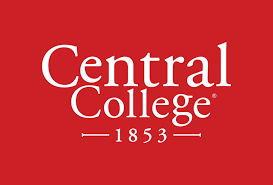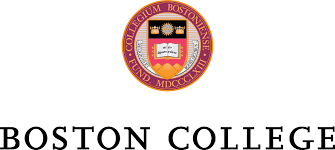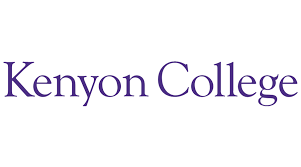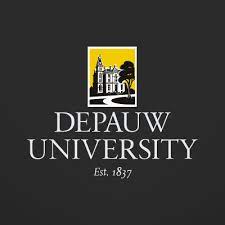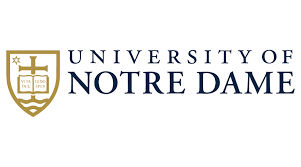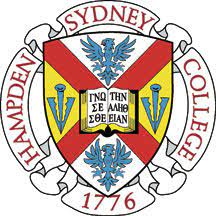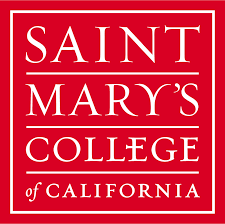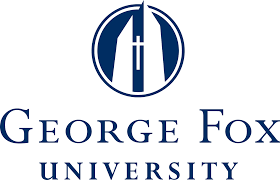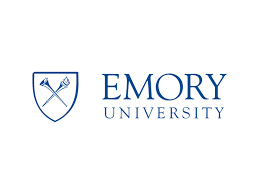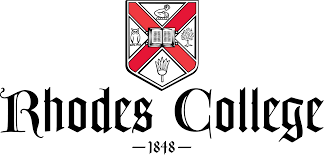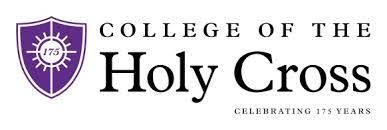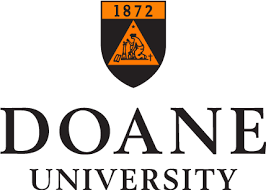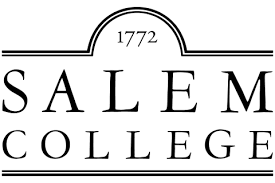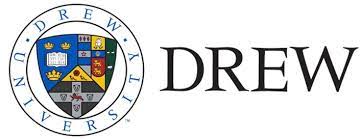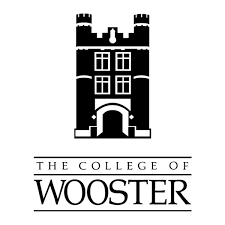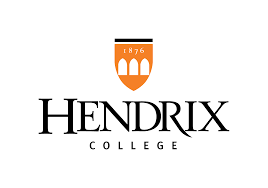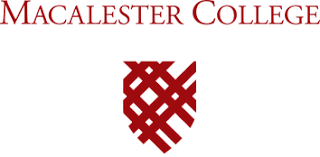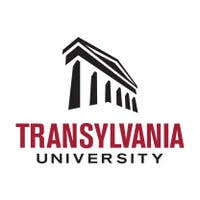Find Your Perfect School
Today, college degrees are increasingly essential for success in the workforce as more occupations require advanced education. One of the most important decisions both students and parents make is choosing the right school for college.
Attending college gives students a chance to meet new people with different passions and diverse backgrounds, which allows them to network with individuals on their career paths.
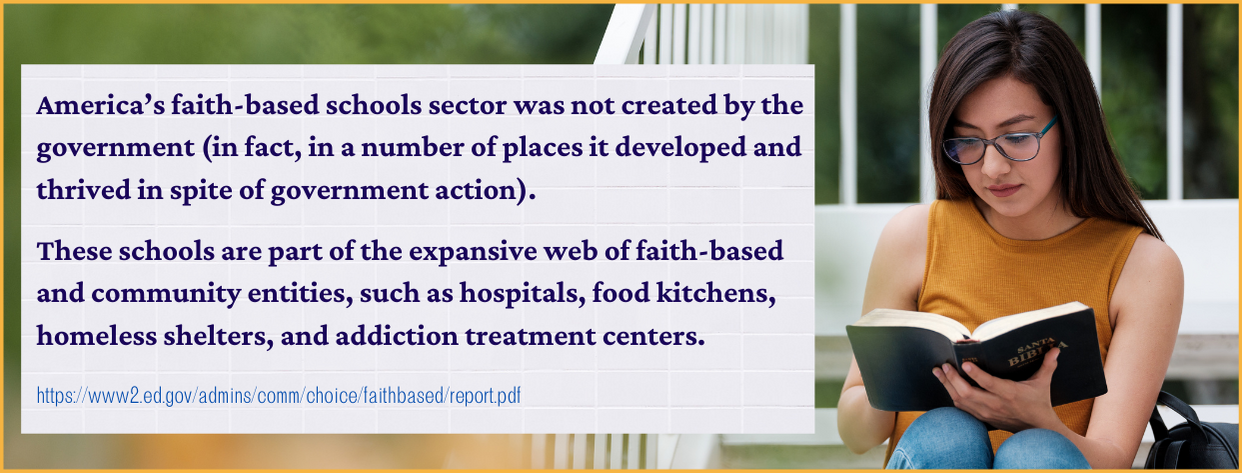
College is a time for many changes for students: new friends, new classes, new roommates, and new deadlines at school. It presents excellent opportunities to develop your skill set and explore new interests. It’s the perfect time to weigh your options and pick out the career path that suits you.
For parents, college is an equally exciting and anxiety-inducing experience! If you’re a parent, sending your children to college is an investment for their future, both professionally and personally. With this, you should consider different factors in choosing a college, such as tuition fees, location, dormitory options, and school values.
Education Beyond the Academic Boundaries
What to Look For
According to a survey, parents place the highest value on both the quality of instructors and student safety when choosing a school. These are followed by academic excellence character development, and spirituality. While these attributes are very important, there are other school features to consider:
- Housing – For students staying on campus, it’s best to check the housing facilities and arrangements. Aside from the safety protocols, consider the proximity of food and laundry options.
- Student Organizations – Focusing too much on academics may lead to burnout. Students may get some time off schoolwork and join clubs that help improve interpersonal and leadership skills. Students may also embrace different advocacies and pursue passions beyond the prescribed curriculum.
- Health Standards – With the recent pandemic, schools should exercise proper health guidelines to make learning safe for all. Consider the protocols put in place in case of a health emergency.
Transcending academic knowledge, faith-based schools accommodate students and parents leaning toward a certain religious background or set of values. Faith-based schools place a high value on faith formation in the overall education of a student. The learning process encompasses both the intellectual and spiritual aspects. In addition to creating a high-quality academic program, they also prioritize the development of good moral character.
Most faith-based colleges and universities include religion in their curriculum, teaching students different religious insights and family values. The courses prepare students for work at a professional level by developing their leadership and social skills. The school should also provide a safe place for students to express their faith freely and without judgment.
Religious vs. Secular
Choosing either religious or secular education largely depends on the student’s or parents’ preference. Most faith-based schools center on spiritual faith and different values integrated into their academic programs and student activities. On the other hand, secular colleges focus on a more humanistic approach to learning, which accepts ideas that religious groups may not support.
The Best Faith Colleges and Universities
We rounded up the best faith-based institutions in the US for you to consider. These colleges and universities were chosen based on their overall objectives that link academic and faith-based learning. They impart faith-based knowledge through experiential learning and outcomes that match the student’s needs. We also considered the extracurricular and community involvement programs students can choose to be part of.
Central College (Iowa)
Central College is a private university affiliated with the Reformed Church in America. Central College combines liberal arts with Christian teachings and traditions to produce academically excellent students. Students may enroll in different courses in science, law, medicine, and recently-offered engineering programs.
Central is also great for student-athletes since it offers state-of-the-art facilities and training equipment. Central also offers on-campus housing to foster independence and encourage being sociable. Its annual tuition is less than $20,000 and may reach up to $30,000 with room and board fees. To help students with financial challenges, Central also offers financial aid through its scholarship programs.
Boston College (Massachusetts)
Boston College, a private Catholic university, is anchored in its Jesuit mission of faith and service. As a leading liberal arts school, Boston allows students to think across different disciplines, helping them figure out the right careers and preparing them for their future professional paths. Boston offers 58 majors from different disciplines, such as Management, Law, Social Work, and Theology.
Boston offers different opportunities, such as campus recreation and wellness activities, for their students to maintain a balanced lifestyle. Counseling services are also available to cater to the holistic development of every student. This school does not discriminate based on religious affiliation or financial capabilities. Instead, Boston gives more emphasis on their student’s academic accomplishments.
Kenyon College (Ohio)
Kenyon College is a private university that offers over 50 majors and minors, plus various concentrations such as Integrated Program in Human Studies and African Diaspora Studies. Its campus encompasses 500 acres of nature preserve, offering its students a picturesque view every day, plus a perfect trail for joggers. It also houses the Harcourt Parish, which serves as the school’s place of worship.
Kenyon champions inclusion and diversity through its Kenyon Educational Enrichment Program (KEEP). This program helps underrepresented students by providing support before starting college and financial support through a stipend.
Additionally, Kenyon also values their students’ families by hosting activities such as Family Weekend. This institution offers different application plans and academic scholarships for deserving students.
DePauw University (Indiana)
As a private Methodist school, DePauw University values inclusive learning by providing a range of experiential opportunities and high-quality intellectual engagement. Its community consists of students and faculty with different cultural and religious backgrounds, fostering inclusivity and diversity.
Aside from being inclusive, DePauw also encourages its students to broaden their horizons by participating in off-campus programs across 45 countries.
DePauw’s Interfaith Council provides an opportunity for their students to explore their own beliefs and values and learn about different religious traditions. Students may also meet with church leaders and ordained clergies for discernment and spiritual support. Tuition fees in this institution may reach up to $67,000, which includes boarding and mandatory fees.
University of Notre Dame (Indiana)
The University of Notre Dame in Indiana commits to sustainability, diversity, and accessibility. Its Catholic nature is reflected on campus in various ways, such as celebrating over 100 Masses weekly and housing 43 Holy Cross priests. It offers equal opportunities for students with disabilities by providing reasonable accommodation and accessibility support through its Center for Student Support and Care.
Notre Dame promotes education for everyone by embracing a Need-Blind Admission Policy, which excludes the applicant’s financial standing during admission evaluation. They offer different housing options in their residence halls, which foster a sense of community and teach students how to live independently. Notre Dame is also committed to the overall welfare of its students by offering over 500 student clubs and groups.
Hampden-Sydney College (Virginia)
Hampden-Sydney College is a private Presbyterian institution that educates and empowers young men. Aside from promoting brotherhood, each student abides by a code of honesty and being gentleman-like at all times. In addition to its 27 majors and 25 minors, H-SC offers different cooperative programs and internship opportunities, which provide a more hands-on learning experience.
Students from Hampden-Sydney may join different honor societies, social fraternities, and student-run organizations that promote leadership and team-building. The school also offers a Rhetoric program that helps its students to communicate effectively and confidently, which has helped numerous politicians and entrepreneurs.
To make a difference through service, grab H-SC’s volunteering opportunities by partnering with local pet shelters and humanitarian organizations.
St. Mary’s College of California
St. Mary’s College of California is a Lasallian college that provides exceptional academic programs through transformative education. The College seeks to grow in knowledge, wisdom, and love with diverse students, faculty, administrators, and staff. Its Mission and Ministry Center offers weekly Masses, fall and spring retreats, and interfaith engagements.
St. Mary’s offers unique programs such as the January Term, an immersive learning experience every January, and Collegiate Seminar, which offers a small group discussion regarding different books.
Additionally, this school puts its students’ health and safety at the forefront by providing counseling and psychological services and a Campus Assault Response and Education Center. Saint Mary’s also provides scholarships to its deserving applicants, with its financial aid amounting to $38,000.
George Fox University (Oregon)
George Fox University is a Christian higher education institution that prepares its students academically and spiritually. They offer more than 60 academic programs, such as Animation, Financial Planning, and Youth Ministry. Leaning toward inclusivity and flexibility, George Fox offers online graduate degrees for working professionals and remote education for first-year students to complete their general education requirements.
As a racially diverse community, George Fox provides a remarkable opportunity for its students to network and build bridges with people of different viewpoints. Its Student Emergency Fund program raises funds to support students who are experiencing financial challenges. Similarly, its Faith Transformation Fund raises funds to provide new students with Bibles after enrollment.
Emory University (Georgia)
Emory University is a private Methodist university that believes in making a difference through liberal arts and research. This school goes beyond the traditional educational programs and allows its students to design their course paths and combine unrelated studies. Emory’s Community Engaged Learning (CEL) classes allow students to apply what they’ve learned by serving as mentors and tutors in child care and community centers.
Aside from being affiliated with the United Methodist Church, Emory is also home to different religious communities, including Buddhist, Muslim, and Hindu communities. This school offers various opportunities to understand different beliefs through interfaith dialogues and programs with a diverse community.
Also, there are various campus organizations where you can showcase your talents, such as the No Strings Attached for aspiring singers and the Emory Wheel for aspiring writers and editors.
Davidson College (North Carolina)
Davidson College is a private presbyterian university that aims to prepare its students for a life of leadership and service. This school promotes diversity by cultivating a community of faculty and students from different ethnicity and diverse backgrounds. Its Chaplain’s Office encourages growth in faith by allowing students to participate in ministerial fellowships and faith-based internships.
In addition, Davidson maintains and observes a calendar of holy days, such as Lunar New Year and Ash Wednesday, to promote awareness and respect towards different religions.
The Davidson campus has trail routes exclusive to its students, which are perfect for joggers and hikers. More than 60% of its students participate in club sports, making it an ideal school for anyone looking to hone their athletic schools.
Rhodes College (Tennessee)
Rhodes College is a private presbyterian institution that values intellectual engagement and civic values. The students at Rhodes receive both classroom and real-world education through internships and research opportunities. Rhodes fosters a sense of community through on-campus housing in its contemporary residence halls.
Besides having more than 100 student organizations on campus, this school holds workshops and seminars to encourage student involvement. There are also various faith-based organizations to choose from, such as the Catholic Student Association and Reformed University Fellowship, which aim to grow spiritually. The school’s Office of the Chaplain is open to its students for life coaching, pastoral care, and meditation tips.
College of the Holy Cross (Massachusetts)
A private Catholic university, College of the Holy Cross promotes academic and athletic development and spiritual growth. Holy Cross believes that by providing liberal arts education, students gain a better foundation in facing personal and professional challenges.
They also believe in building relationships between its faculty and students by promoting mentorship, wherein students are paired with a faculty advisor that will guide them throughout college.
Identifying with the Jesuit mission of serving others, Holy Cross extends its hand to various financially challenged communities through the Student Programs for Urban Development (SPUD) and various immersion projects. Its Chaplains’ Office provides different student programs to strengthen their faith through liturgical ministry, retreats, and pastoral care.
They hold regular Catholic Masses and weekly interdenominational services, which promote unity and inclusivity among students.
Doane University (Nebraska)
Doane University is a liberal arts college that has been getting recognition for its excellent academic performance. Aside from offering 45 majors and 36 minors, this private college in Nebraska also provides many extracurricular activities by having more than 60 student clubs and 22 athletic teams.
This school offers a more personal learning style with an average class size consisting of only 11 students, where you’ll surely get to interact with your instructors.
Doane’s College of Arts and Sciences offers a Religious Studies program that tackles major faith-based traditions and practices from all over the world, which allows its students to understand different belief systems.
Furthermore, Doane fosters an inclusive community by providing disability services and multicultural support services. Despite being a private institution, this school provides different academic scholarship grants and stipends and athletic and performing arts scholarships.
Salem College (North Carolina)
Salem College is a private all-girl liberal arts college that aims to develop its students’ potential and prepare them to create a global impact. Salem offers world-class facilities for performing arts, sports, and sciences. This school also offers different clubs to allow students to different interests such as activism, performing arts, and leadership.
Salem encourages its students to complete internships in foreign countries to fully immerse themselves in a different culture and gain useful experiences. Salem also has different spiritual organizations, such as Baptist Student Ministry, Catholic Student Association, and Moravian Campus Ministry. These organizations are open to all students seeking a community of prayer, worship, and spiritual guidance.
Drew University (New Jersey)
Drew University is a private United Methodist university that aims to produce high-skilled and determined graduates through its Launch program. Aside from offering 40 majors and 17 dual degree programs, Drew offers different Theological programs, including a degree in Ministry and Divinity. Drew offers academic scholarships ranging from $10,000 to $25,000 and several specialized scholarships for performing arts and transfer students.
Having roots in the Methodist faith of inclusivity, Drew opens their doors to people of any faith, even agnostics, and atheists. Together with participating student organizations, its Religious Life Council offers different spiritually enriching activities such as Vigils for Peace and Group Chats in Seminary Hall. On the other hand, Drew addresses cultural issues and challenges of human hierarchy through their Office of Diversity, Equity, and Inclusion (DEI).
Wofford College (South Carolina)
Wofford College is a private Methodist university that focuses on fostering academic and character excellence through collaborative learning. Wofford offers up to 27 majors and several pre-professional programs, including Pre-Law and Pre-Medical. Its tuition fee may range from $49,000 to $63,000, depending on whether or not you’ll opt for their housing arrangement.
Wofford offers a wide range of organizations in academics, performing arts, recreation, and diversity. They also offer faith-based organizations such as Interfaith Youth Core, Reformed University Fellowship, and Baptist Collegiate Ministry. Its Halligan Center for Religious and Spiritual Life presents different activities such as discussion groups, weekly meditation, and traditional worship services.
College of Wooster (Ohio)
College of Wooster is a private university that aims to prepare its students to become globally- competitive leaders through liberal education. Wooster offers over 50 areas of study and different pre-professional programs for students to choose from. This school hosts a diverse student population, with students coming from 68 different countries.
Wooster’s Religious and Spiritual Life department promotes spiritual growth by supporting different student organizations and programs. They also provide different safe spaces for prayer and solitude and places of worship and ministry such as the Westminster Church House. This school recognizes the different religious communities around the Wooster area and may help its students reach these communities by providing travel assistance.
Hendrix College (Arkansas)
Hendrix College is a private Methodist university that believes in active learning by promoting hands-on experiences through internships. Aside from offering over 30 majors and pre-professional programs, Hendrix also offers interdisciplinary degrees, which encourages its students to create their academic paths with the help of faculty advisors.
With over 70 clubs and organizations, Hendrix offers different student activities to enrich different interests and passions. On the other hand, Hendrix’s Chaplain’s Office offers different programs, such as worship services and spiritual retreats, to help students connect with their faith. Weekly services are held in Greene Chapel, which serves as the center of the school’s religious life and a beautiful reminder of its United Methodist influence.
Macalester College (Minnesota)
Macalester College is a private university that fosters positive change by giving importance to diversity and service. Macalester offers around 37 majors and several concentrations, including International Development and Human Rights, and Humanitarian. Macalester offers equal opportunities for its applicants by providing different financial aid and student employment.
Macalester’s Center for Religious and Spiritual Life welcomes conversations about faith and personal development through one-on-one or small group discussions. They offer various safe spaces for worship, such as the Weyerhauser Memorial Chapel, prayer rooms, and a Mosque for the Muslim community. In addition, this school has over 100 student organizations and encourages activism and civic engagement.
Transylvania University (Kentucky)
A private Christian university, Transylvania University aims to produce community-driven students with the help of its engaging faculty. Transylvania offers 46 comprehensive majors that are geared toward academic excellence. Its academic curriculum also emphasizes honing communications skills and critical thinking, which employers highly value.
Its Office of Spirituality and Life, an affiliate of the Christian Church, provides different prayer opportunities and interfaith services. The Kentucky-based university promotes community service and social justice awareness. Transylvania encourages interfaith services by having different faith-based organizations, including Transylvania Catholic Organization and the Muslim Student Association.
Are faith-Based schools for everyone?
Almost all religious institutions create academic programs that reflect their values and beliefs, instilling a greater purpose beyond earning a degree. With this, graduates would pursue a career that doesn’t just pay well but positively impacts the community. Such is a priority objective of faith-based education.
While attending a faith-based institution may offer many benefits, it may have some downsides to it too. Most religious institutions enforce strict rules and policies, such as early curfews and controlled visiting hours. Some schools have dress codes or even prescribe a uniform.
This rule may go against free-spirited students who are not used to following restrictions. There are, of course, some colleges that are less rigid than others. Learn the rules of the campus, and determine if you are comfortable with them!
Another disadvantage is getting into a faith-based school that is focused on one religion. This often excludes students with different beliefs and religious backgrounds, which may cause an uncomfortable learning experience. But this is rare since most spiritual colleges are very welcoming and promote diversity.
Lastly, faith-based schools may have high tuition fees compared to public universities. Religious colleges usually limit their student-to-teacher ratio, which in turn raises the fees paid. Most institutions offer scholarships and student assistance for deserving college students facing financial challenges despite the expensive fees.
Are you a good fit for a faith-based college or university?
Entering college is both an exciting and challenging time for students and parents. There are many factors for choosing the right institution where you or your child will spend the next four years. Aside from the school’s academic programs, facilities, and location, the values the college promotes must also align with your own. If you’re considering attending a faith-based school, it’s also best to check the available housing options and nearby health facilities.
There are plenty of faith-based schools to choose from in the US. Explore your options well! Most schools offer viable information online through their websites. You may also contact your prospective school’s admissions office for further information and schedule a campus visit.
What are the benefits of a faith-based education?
- Academic Excellence: Faith-based education strongly focuses on academic excellence and high academic achievement. This is achieved through an emphasis on solid values, rigorous academics, and high expectations.
- Moral and Spiritual Development: Faith-based education provides an environment where students can develop a strong moral and spiritual foundation. Through religious instruction, spiritual growth and development, and a commitment to service, students can learn to be responsible, caring community members.
- Character Development: Faith-based education emphasizes the development of character. Students learn respect for others, the importance of personal responsibility, and the value of service.
- Community: Faith-based education encourages a sense of community within the school and the larger community. Students learn to respect and appreciate diversity and to work together to solve problems and build strong relationships.
- Leadership Development: Students in faith-based schools are provided with leadership opportunities inside and outside the classroom. Through mentorship, service projects, and other activities, students can develop the skills and confidence necessary to be successful in their future endeavors.

